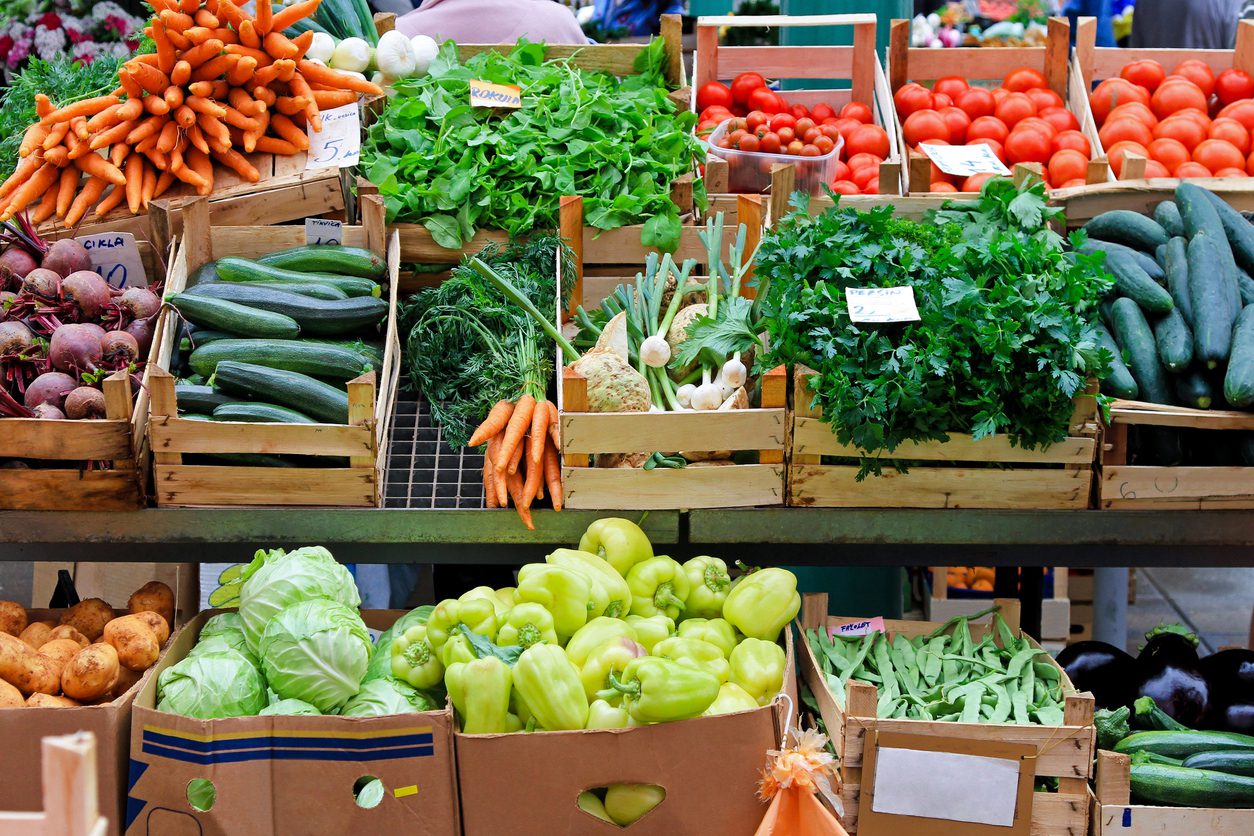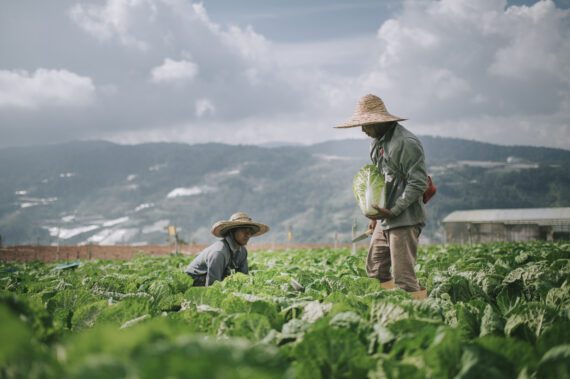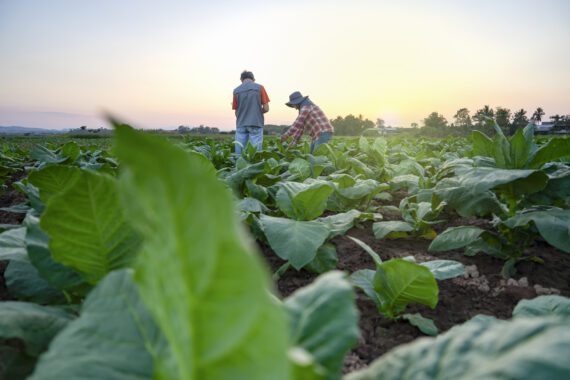By Isabel Vander Molen
At Bread for the World, we envision a world without hunger. Ending hunger is not just about providing food; it’s about ensuring everyone has access to the nutritious food they need to lead healthy, active lives and fulfill their human potential.
The climate crisis is a threat to food and nutrition security everywhere, but especially in low- and middle-income countries. May marks the 12th consecutive month of record-breaking global warmth, according to the National Oceanic and Atmospheric Administration. Unfortunately, areas that already struggle with meeting food and nutrition security needs will also be disproportionately affected by climate impacts on food security—this despite contributing little to human-induced climate change. These areas include countries located in Africa, Central and South America, and Southeast Asia.
In addition to our analysis of studies that indicate that the available level of nutrients in some specific crops could fall, Bread has been paying attention to growing evidence that climate change could lower the yields, and therefore the availability and accessibility, of nutrient-dense foods. A recent Farm Journal Foundation (FJF) report compiles this evidence by analyzing major global food trends over 60 years.
One of the nutritional threats the FJF report identifies comes from a “misalignment” in current agricultural research priorities. Agricultural research and extension investments play an important part in finding and scaling up climate-resilient solutions that help farmers continue to earn a livelihood and help ensure food security. However, the report finds there is overinvestment in commodity crops like sugar and oil, and little investment in nutrient-rich crops like vegetables, fruits, and legumes.
This presents a challenge for nutrition security in a climate crisis. Without sufficient research, nutrient fortification, resilience measures, technical assistance, and other adaptation measures, Indigenous and nutrient-dense crop varieties will be disproportionately impacted by climate shocks like drought or new varieties of pests or diseases. If a wide array of crop species and varieties go extinct, humanity loses valuable access to genetic information in these diverse varieties that may be important to improving nutritional quality and climate resilience. Further, traditional and diverse crops not only hold high nutrient potential but also contribute to protections against climate change found in natural ecosystems and environments.
This finding from the FJF report comes out as the Vision for Adapted Crops and Soils (VACS) announces an expansion from the African continent to Central America. VACS is an initiative launched by the U.S. Department of State, the United Nations Food and Agricultural Organization, and the African Union that works to fill research and nutrition gaps by using Indigenous or “opportunity” crops to restore soil health, withstand climate change, and create better nutritional opportunities.
The VACS initiative has found that in countries like Malawi, over-reliance on commodity crops like maize has led to ecosystem degradation and nutrient-poor diets. Diversifying crop use has the double benefit of increasing the availability of nutrient-rich foods and sustaining the traits of traditional and Indigenous crops that contribute to ecosystem resilience and restoration during a climate crisis. In Malawi’s context, that means investing in crops native to the environment such as sorghum or yams.
After two years of operation in Africa, the VACS initiative is being launched in Guatemala and Honduras, two Feed the Future countries located in Central America’s “Dry Corridor.” The corridor is characterized by frequent droughts that may be exacerbated as the climate crisis worsens. It is also home to Indigenous communities that face high levels of hunger and malnutrition. In Guatemala, nearly 50 percent of children suffer from undernutrition, and in Honduras, the double burden of undernutrition and obesity cost the country $2.3 billion in 2017 (latest figures available).
Agricultural research plays an important role in finding solutions to climate shocks and developing ways of scaling these solutions up to meet the needs. The VACS initiative’s goal of improving equity when it comes to crop research could inspire other development and private sector institutions to engage more deeply in similar models of investing in food systems, such as in additional Feed the Future countries.
Isabel Vander Molen is a climate-hunger fellow, Policy and Research Institute, with Bread for the World.



